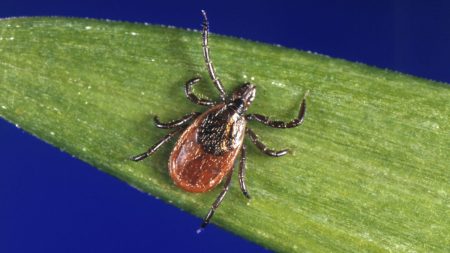Paragraph 1: Unveiling the Genetic Architecture of Depression
A groundbreaking international study has significantly advanced our understanding of the genetic underpinnings of depression. Involving nearly 5 million participants across 29 countries, the research represents the largest and most diverse investigation of depression genetics to date. The team, led by researchers from the University of Edinburgh and King’s College London, analyzed genetic data from 680,000 individuals diagnosed with depression and compared it to data from 4 million individuals without depression. This approach, known as a genome-wide association study (GWAS), examines genetic variations across the entire genome to identify those associated with specific traits or diseases.
Paragraph 2: Identifying Novel Genetic Variants and Implicated Genes
The study’s findings reveal a complex genetic architecture underlying depression. Researchers identified a staggering 697 genetic variations linked to an increased risk of depression. Remarkably, 293 of these variants were previously unknown, underscoring the study’s contribution to the field. Furthermore, the research pinpointed 308 specific genes associated with a heightened depression risk. Many of these genes play critical roles in neuronal function within brain regions like the amygdala and hippocampus, areas known to be involved in emotional processing and memory.
Paragraph 3: Implications for Understanding and Treating Depression
These findings shed light on the polygenic nature of depression, meaning that multiple genes contribute to an individual’s risk. This understanding challenges the notion of depression as a single entity and paves the way for more personalized approaches to treatment. By identifying specific genes and pathways involved in the development of depression, researchers can begin to develop targeted therapies that address the underlying biological mechanisms of the disorder. This could lead to more effective treatments tailored to individual genetic profiles, potentially improving outcomes for those struggling with depression.
Paragraph 4: Diversity and the Importance of Context in Depression Research
A notable strength of this research is its diverse participant cohort. One in four participants came from a non-European background, enhancing the generalizability of the findings. Recognizing that depression is not solely determined by genetics is crucial. While genetics play a significant role, social and psychological factors also exert a powerful influence. Traumatic or stressful life events, a history of other mental health disorders, and substance abuse are all recognized risk factors for depression.
Paragraph 5: Towards Personalized Risk Assessment and Ethical Considerations
The identification of numerous genetic variants associated with depression raises the possibility of developing polygenic risk scores, which combine information about an individual’s genetic makeup to estimate their likelihood of developing the disorder. Such tools could be particularly valuable in early intervention settings, potentially identifying individuals at high risk before the onset of severe symptoms. However, the clinical implementation of these scores requires careful consideration. Genetic risk is not deterministic; a high-risk individual may never develop depression, while someone with a low genetic risk may still experience the disorder due to environmental or other factors. Communicating genetic risk to individuals requires sensitivity and careful consideration of the potential psychological impact.
Paragraph 6: Building a Brighter Future for Depression Research and Care
This landmark study represents a significant step towards a more comprehensive understanding of depression. Larger, more inclusive studies are critical for continued progress in developing effective treatments and preventative strategies. By unraveling the complex interplay of genetic and environmental factors, researchers aim to improve the lives of those affected by depression and reduce the global burden of this debilitating condition. Furthermore, the research underscores that mental health conditions, like physical illnesses, have a biological basis, promoting a greater understanding and reducing stigma surrounding mental illness. These findings offer hope for a future where personalized medicine and targeted interventions can effectively address the diverse forms of depression and provide individualized care tailored to each person’s unique needs.














